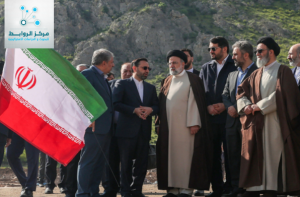By Shatha kalel
The sudden death of Iranian President Ebrahim Raisi in a helicopter crash has profound implications for Iran’s economy, regional stability, and global markets. As the nation grapples with the immediate political fallout, the economic ramifications are becoming increasingly apparent. This article explores the potential economic impacts of Raisi’s death on Iran and the wider region.
Immediate Economic Uncertainty
Market Reactions
The immediate aftermath of President Raisi’s death is likely to create significant market uncertainty. Financial markets react swiftly to political instability, and Iran is no exception. The Iranian rial, already under severe pressure due to high inflation and economic mismanagement, could face further devaluation. This devaluation could increase the cost of imports, exacerbate inflation, and reduce purchasing power for ordinary Iranians, worsening the existing economic hardship.
Investor Confidence
Investor confidence, both domestic and international, is expected to take a hit. Uncertainty about Iran’s political future and the potential for increased internal strife may deter both foreign and domestic investment. This could stall or even reverse any nascent economic recovery efforts, further straining an economy already grappling with sanctions and mismanagement.
Economic Policies and Governance
Continuity and Change
The interim leadership of Mohammad Mokhber, known for his ties to the Islamic Revolutionary Guard Corps (IRGC), suggests that there will be continuity in economic policies. However, Mokhber’s lack of a strong public profile and potential challenges in maintaining the same level of control as Raisi could lead to policy paralysis or inconsistent economic governance.
Impact on Reforms
Any economic reforms initiated under Raisi are likely to be put on hold or face delays. Key projects, foreign investments, and economic agreements might be revisited or halted altogether as the new leadership reassesses priorities. This stagnation could hamper critical sectors such as energy, infrastructure, and technology, further delaying Iran’s economic progress.
Sanctions and International Relations
Nuclear Negotiations
Raisi’s death may impact Iran’s ongoing negotiations regarding its nuclear program. A shift in leadership could alter the tone and direction of these negotiations, which in turn affects the country’s economic sanctions regime. If the new leadership adopts a more hardline stance, it could lead to prolonged sanctions, further isolating Iran economically and limiting its access to international markets.
Regional Tensions
Increased regional tensions, especially with Israel and Saudi Arabia, could destabilize the Middle East further. Any escalation could disrupt trade routes, particularly through the Strait of Hormuz, a vital corridor for global oil shipments. Such disruptions could lead to fluctuations in global oil prices, impacting global markets and economies dependent on energy imports.
Domestic Economic Conditions
Inflation and Currency Devaluation
Iran is already facing an inflation rate exceeding 50%, and the loss of political leadership is likely to exacerbate economic instability. Further devaluation of the rial could occur as confidence in the government’s ability to manage the economy wanes. This could lead to higher prices for essential goods, increasing the cost of living for ordinary Iranians and heightening public discontent.
Employment and Social Stability
Economic instability often translates into higher unemployment rates as businesses struggle to operate under uncertain conditions. Rising unemployment, coupled with increasing living costs, could lead to greater social unrest. The government’s ability to maintain social stability while managing an ailing economy will be severely tested.
Long-term Economic Prospects
Strategic Economic Direction
In the long term, Raisi’s death could either open the door to new economic policies or cement the current path of economic management. If the interim leadership or subsequent permanent administration adopts more progressive economic policies, there could be potential for gradual recovery and growth. Conversely, a continuation of hardline policies might deepen Iran’s economic woes and further alienate it from the global economy.
Foreign Investment and Trade
Iran’s attractiveness as a destination for foreign investment hinges on political stability and economic policy clarity. The current uncertainty could deter foreign investors, particularly in critical sectors like oil and gas, where long-term stability is essential for investment. Reduced foreign investment would limit Iran’s ability to modernize its infrastructure and boost its economic potential.
Global Economic Implications
Oil Markets
As one of the world’s largest oil producers, Iran’s political stability significantly impacts global oil markets. Any disruption in Iran’s oil production or export capabilities can lead to volatility in global oil prices. This, in turn, affects economies worldwide, particularly those heavily reliant on oil imports.
Trade Relations
Iran’s economic policies and stability also influence its trade relations with key partners, including China, Russia, and European countries. Disruptions in these relationships due to political changes could have broader economic implications, affecting global trade dynamics and regional economic balances.
The death of President Ebrahim Raisi introduces a period of economic uncertainty and potential instability for Iran. The immediate impacts include market volatility, investor skepticism, and potential delays in economic reforms. In the longer term, the direction of Iran’s economic policies under new leadership will be crucial in determining whether the country can navigate its economic challenges or sink deeper into economic isolation and hardship. The global economy, particularly the energy markets, will be closely watching these developments, as the implications of Iran’s political and economic trajectory extend far beyond its borders
Economic Studies Unit / North America Office
Rawabet Center for Research and Strategic Studie

